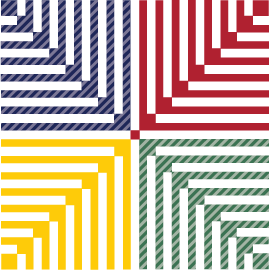

BPFF: How did you get the idea to film an ambulance around during the war?
MJ: I used to work at a hospital before the war started. I was the photographer at the hospital. I would shoot surgeries or operations or something in the field sometimes. The idea just came in the moment. I didn’t know something bad would happen like a war. The moment when the first attacks happened, the first day, I was at the hospital. In the beginning, when something happens, you can’t make a decision—it’s not like that.
I felt the ambulance was the closest to the war, or it’s the one place where you can discover what’s happening immediately. These were the people on the frontlines trying to rescue others. Not just in this war, but in all cases.
BPFF: In the beginning of the film, you say filming from behind your camera made you feel very safe. Can you talk about that?
MJ: The camera, I felt, was the closest thing to me. It became connected to me more than anything. The camera saw what I saw. That’s why I say in the film, “Clinging to my camera made me feel safe.” But you know, not actually safe; it was more like a friend.
BPFF: The film is uncensored, with the viewer seeing dead bodies and more. Why did you decide to not blur anything?


My main focus in the film is not just the dead bodies or the injured people. It’s more about how to live a life under these circumstances. To show what it all felt like, I just tried to keep the nature as true as possible and not focus on the harrowing pictures.
With the mainstream media, it’s always different. You get one percent of the true story. I tried as much as I could to combine what I felt with what I’d been through and put it in one piece, and it’s called Ambulance.
BPFF: There are also some humorous moments in the film. One man sees that his house has been bombed and laments that he hasn’t paid off the washing machine yet.
MJ: Within these days, there was still life. If you kept thinking during the 51 days about the war, you wouldn’t be able to recharge your energy. I wanted to show these funny moments because I felt them there.
As a human being, living in this area, you just live in the moment, and even if it’s difficult, everyone sticks together. Everyone came together during these days.
BPFF: You don’t offer any political analysis during the film.
MJ: My interest is not in politics. What happened—it’s the result of a political issue. It’s my decision to just focus on human side, on how to live a life in such difficult circumstances. It’s my personal story. It could have happened anywhere, but my matter was in Gaza.
BPFF: Did you ever want to stop filming?
MJ: Yes. I wasn’t always carrying the camera. Sometimes in some situations, the ambulance team needed me to help them, and I’d feel that the camera was stopping that. I’d put it away, During those days, I became really a member of the ambulance crew. Sometimes I’d see how much was too much. I wasn’t just a camera, I was a body and I could help them.
BPFF: Thank you.
— Zane Razzaq for BPFF
Ambulance screens Friday, October 27, 2016 at 7:30 pm at the Museum of Fine Arts, Boston.
View the full festival schedule and buy tickets here.

